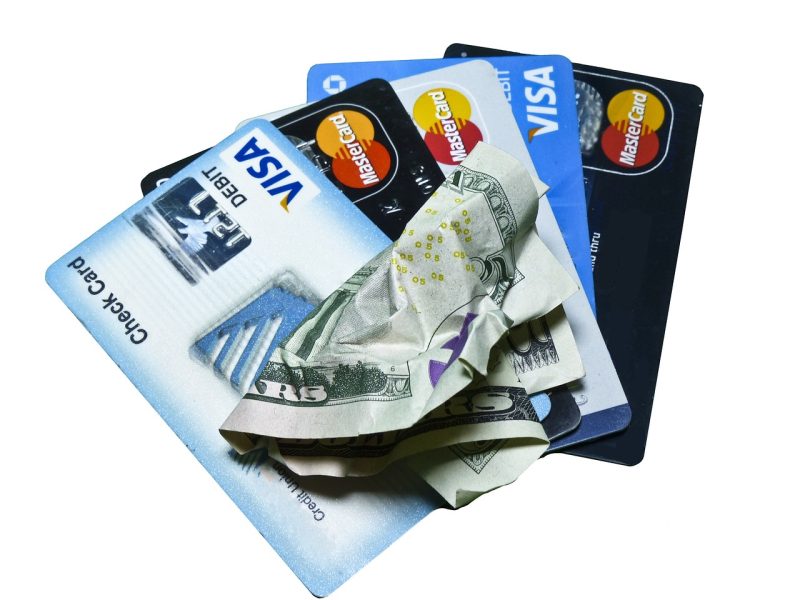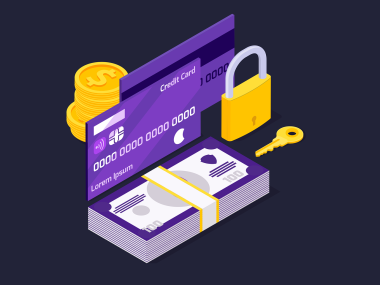How To Choose The Right Credit Card:
Choosing the right credit card can be a pivotal decision in your financial life. The sea of options, offers, and flashy rewards can make the task seem daunting. The trick lies in understanding what makes each card unique and aligning that with your personal financial situation and goals.
In this guide, we’ll unravel the intricacies behind selecting the credit card that serves you best and explore the most important factors you need to weigh during this decision-making process.
What are the Most Important Factors to Consider When Choosing a Credit Card?
When it comes to credit cards, one size certainly doesn’t fit all. It’s crucial to examine several key aspects before settling on ‘the one’.
Interest Rates
First things first, let’s talk about interest rates. APR, or Annual Percentage Rate, can greatly affect the overall cost of your credit. Owning a card with a high APR can make carrying a balance from month to month an expensive affair.
Scrutinise the APR for all aspects: purchases, cash advances, and balance transfers, aiming for rates that won’t sink your financial ship.
- Evaluate APR for different transactions
- Look for introductory offers like 0% APR periods
- Understand variable vs. fixed APR
Fees
Second only to interest rates are the fees. They can sneak up on you and add significantly to your costs without you realising it. Some cards charge an annual fee; others pin you with hefty charges for late payments or foreign transactions.
- Be wary of annual fees, and decide if the benefits outweigh this cost
- Late payment charges can add up quickly; opt for cards with lower fees
- Watch out for foreign transaction fees if you travel often
- Minimize costs by avoiding cards with high balance transfer fees
Rewards and Benefits
Rewards and benefits can turn a mundane financial tool into something rather exciting. Whether it’s cash back, points, or travel miles, find a card that matches your spending patterns. Don’t forget to consider perks like insurance coverage and concierge services.
- Identify rewards programs that align with your spending habits
- Understand the reward redemption process and potential limitations
- Assess additional benefits and insurance coverages
Credit Limits
Credit limits are not just numbers; they’re reflections of your creditworthiness and trustworthiness in the eyes of issuers. Choose a limit that satisfies your needs but also discourages overspending. A higher limit can be beneficial if managed wisely.
- Choose a credit limit that supports your spending without encouraging debt
- Understand how your credit limit affects your credit utilization ratio
- Remember, a high limit can be a double-edged sword
Acceptance and Issuer Reputation
Last but not least, card acceptance and the reputation of the issuer matter significantly. A widely accepted card minimizes headaches, while a sterling issuer reputation ensures you have support during fraudulent charges or disputes.
- Opt for a card that is accepted globally for convenience
- Do not overlook the importance of issuer customer service reputation
How Do I Know Which Type of Credit Card is Best suited for My Spending Habits?
Your credit card should reflect your lifestyle and spending habits, acting as a financial asset rather than a liability.
Assess your Spending Patterns
Start by examining your previous monthly bills and bank statements. This gives you an insight into where your money tends to go. From there, choose a card that offers rewards or cashback in those specific areas.
- Groceries, gas, or travel—point out your most common expenses
Compare Rewards Programs
Not all rewards programs are created equal. Some offer better rewards for certain categories. It’s essential to do the math and find out which card will give you the most bang for your buck.
- Compare cards that offer significant returns in categories you spend the most
Understand Fees and Interest Rates
Knowing the intricacies of the card’s fee structure and interest rates is vital. Especially if you have a habit of carrying a balance, these can either be manageable or a fast track to debt.
- Take note of the impact of interest rates if you carry a balance
Consider Card Benefits
The additional perks can be particularly alluring. If a card throws in travel insurance or extended warranties, these benefits may prove invaluable depending on your lifestyle.
- Evaluate how much value you place in travel insurance or extended warranty coverage
Check Eligibility Requirements
Before falling in love with a card, ensure you meet the eligibility criteria. A good or excellent credit score can open the doors to premium cards with lucrative rewards.
- Confirm that your credit score meets the card’s requirements
What is the Difference Between a Rewards Card and a Cashback Credit Card?
The juxtaposition of rewards cards versus cashback cards lies in the kind of benefits they offer.
Rewards Cards
Rewards cards usually come in the form of points or miles. They incentivize specific types of spending like dining or travel and can be redeemed for a multitude of rewards. However, the catch is that the value of points or miles can fluctuate depending on the redemption method.
- Rewards such as points or miles are redeemable for various services
- Can be more valuable if they align with frequent spending categories
Cashback Credit Cards
Cashback cards, on the other hand, are the epitome of simplicity: a percentage of your spending returned to you in cash. There are generally fewer complications with cashback cards, making them a straightforward and transparent choice for many.
- Receive a straightforward percentage of spending as cashback
- Values are more consistent compared to points or miles
Can My Credit Score Affect the Type of Credit Card I Am Eligible For?
Yes, your credit score can be the golden ticket to a better credit card experience or a barrier you need to overcome.
Credit Score as a Key Factor
Credit scores influence the caliber of cards available to you. A favorable score could unlock cards with attractive perks, while a lower score might restrict you to more basic options.
- A high credit score could mean access to cards with more benefits and lower rates
Applicants with High Credit Scores
Those with impressive credit scores are more likely to get approved for cards that are rewarding and cost-effective.
- A strong credit profile can lead to approval for premium reward cards
Those with Lower Credit Scores
A not-so-stellar credit score may lead you towards secured credit cards or ones with stringent terms. These can be a stepping stone to improving your credit and eventually qualifying for better offers.
- Consider secured cards or those designed for building credit if your score is less than ideal
Importance of Improving Your Credit Score
Boosting your credit score should be a continuous journey, as it can open up possibilities for more attractive card offers in the future.
- Working on your credit can have long-term benefits in terms of credit card eligibility
Should I Choose a Credit Card with an Annual Fee or One Without?
The dilemma of whether to go for a card with an annual fee can sway your card choice considerably. Each option has its pros and cons.
Assess Benefits
A card with an annual fee might pack a punch with valuable perks. Compare the benefits you will utilize against the fee to see if it makes financial sense for you.
- If the benefits outweigh the fee, it might be a wise choice
Compare Fee Versus No-fee Cards
The cost-benefit analysis extends to comparing these types of cards across various facets. Look beyond just the annual fee – consider the interest rates, reward structure, and other card features.
- Gauge whether the no-annual-fee card offers enough value in comparison
Consider Your Credit Usage
If you’re a frequent card user and avidly partake in the rewards and benefits, an annual fee card might make more financial sense for you.
- Frequent use could justify an annual fee for greater rewards
Review Annual Fee Waivers
Some issuers offer to waive the annual fee for the first year or under specific conditions. This can be a great way to test the waters without committing financially.
- Look for cards that waive the annual fee under certain conditions
Choosing the right credit card is akin to picking a trusted travel companion—it must align with your journey and enhance it. By dissecting interest rates, considering fees with a critical eye, rewarding yourself with the best rewards and benefits, selecting appropriate credit limits, and weighing the options of cards with or without annual fees, you can make an informed decision.
Knowledge is power, and when it comes to credit cards, the more you know, the better you’ll fare. Always remember to use credit responsibly and enjoy the journey of financial empowerment it can bring to your life.



